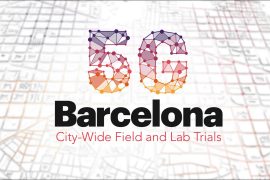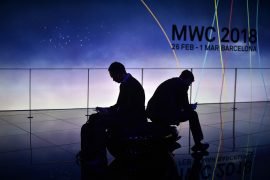[dropcap letter=”P”]
hilosophy conveys tranquility, although she seems to be concerned when the photographer asks her to show her hands. “My hands? I never liked my hands”, she warns. We have alluded to the confusing Spring ‘68 with a jab at her generation, whose mind was more set on the Sorbone than on the Prague Spring. “This was never considered because Communism, at the time, could not even be touched upon. At university, we would study Marx on the sly with Manuel Sacristán, I was more interested in his lectures on logic than on his political theories. At the time, if you were not a Marxist, you were not cool and hip: I was never a Marxist, so that saves me any type self-criticism whatsoever”, says ironically.
She has mentioned Sacristán but in the Wikipedia his name is linked to Victoria Camps and the teachings of José Luis López Aranguren and José Ferrater Mora. “It seems like somebody had decided that and the idea has been repeated and stayed on: my work is more related to the former —although I was never one of his students— than the latter: my work is closer to the practical philosophy laid out by Aranguren, long before this philosophy became trendy. Until then, the only ethics available was the Thomistic ethics”.
The Barcelona-born philosopher has spread ethics from university campuses to hospitals. Those who still question the usefulness of philosophy, they now bear witness to its impact on labs and medical institutions. Since Camps set up the first Comitee of Bioethics of Spain, Camps has supplied humanistic knowledge into the management of Hospital del Mar, the University Hospital Vall d’Hebron or the Esteve and Grífols Foundations. Thanks to bioethics protocols, a patient can now preserve his human condition: “A patient is, above all, a human being”, she states.
We have mentioned religion too… Camps believes that religion should be optional, a secular —not secularist— society should offer curricular contents including contents from different religions: “My son is an art historian and the first advice he received from his art professor was to read the Bible
Health and education. The two main areas for any good government. “Thanks to the General Law of Health Service, Spain is equipped with the best and the cheapest health services”, highlights Camps. On the other hand, education is another kettle of fish: “In Finland, a country that we always look up to as a successful educational model, there has never been an educational reform… Here, we have had quite a few educational reforms, imposed both by law and ideology. Wrongly enough, instead of changing things that do not work anymore, the emphasis of education is on controversial issues such as religion and language. As many as 30% of our students become school dropouts at sixteen. Vocational training studies remain underrated and lack social prestige. It would be good if the public-school system enjoyed the same consensus as the one existing on the issue of public health”.
We have mentioned religion too… Camps believes that religion should be optional, a secular —not secularist— society should offer curricular contents including contents from different religions: “My son is an art historian and the first advice he received from his art professor was to read the Bible. It is difficult to explain medieval philosophy when you ignore what Christianity represented. In the Spanish Senate, Gregorio Peces Barba fostered the creation of a work group promoting the inclusion of the subject Religious Culture in the curriculum: we drafted up a programme which, unfortunately, was never implemented”. All these references to classrooms and education lead us to the image of students glued to the screen of their mobile phone or tablet while the teacher talks. “We should remember more often one of the sentences by Steve Jobs: we need more teachers and journalists than ever before because we need selection criteria, the technological support is just a tool, this is not studying”, points out Camps.
In her own experience at the Audio-visual Council of Catalonia (Consell Audiovisual de Catalunya, CAC) and the Committee of experts for the reformation of public television promoted by former Spanish Prime Minister Rodríguez Zapatero, Camps saw that ethics has little impact on communication and the social media. She admits to being upset when she delivers a lecture and the audience twits some of her words as isolated sentences and, possibly, out of context. Faced with the difficult balance between freedom of expression and sanctions to excessive twits, this philosopher suggests self-regulation: “Moderation is one of the features that define ethics: self-moderation, self-control, the middle ground, temperance are virtues that should never be underrated to ensure seamless problem-free co-habitation. An individual should self-regulate and set limits to his own impulses should these become offensive, unpleasant or inconvenient to other people”, she wrote in one of her articles published in El País.
Delving into the idea of limits, we pushed our interviewee a bit further. Like France, would you refuse to publish Céline’s anti-Semitic pamphlet, duly contextualized with a preliminary study? “If Mein Kampf was published, Céline should also be published provided that there is an explanation that the author was a totally mad anti-Semite, despite being a great writer. The problem with this type of work is not censorship but being frivolous about it”, she says.
Words doomed to obsolescence as a result of postmodern frivolousness appear in the interview: moderation, virtue. We could add to the list manners, will, discipline, authority, morality… Camps defended the concept of “virtue” in Virtudes públicas [Public Virtues] (Awarded the Premi Espasa to the Best Essay in 1990) and another work in press at the UAB La fragilidad de la ética liberal [The Fragility of Liberal Ethics]. One step at a time. “Today’s teaching is based on values, rather than virtues. Values have economic undertones, while virtue means acting like citizens, building up a moral personality. Maturity consists in being autonomous and thinking for oneself instead of seeking group security all the time”. A slight nuance: “Being autonomous does not mean breaking each and every norm, but rather understanding what our limits are”.
Barely noticing it, we are back to the classrooms: “I have been very critical of educational reforms that fail to stress such concepts as discipline, authority, asymmetry between teacher and student. Firstly, we eliminate the lectern, then the desks and we all end up sitting on the floor”. Philosophy without the lectern degenerates into self-help, a distillation of what Lipovetski called painless ethics. “Although ethics does not penalize like law, ethics is normative and forces you to act consciously”, adds Camps. As regards the fragility of liberal ethics, she accuses western democracies of failing to construct a public morality: “It appears that being liberal is confused with the belief that everything is allowed”, she says. We had begun our conversation talking about May ‘68… Fifty years later, we wonder about the interests and teachings of Victoria Camps. Since she retired after enjoying a four-year emeritus position, she can be nothing but a philosopher: she likes writing books like Elogio de la duda [Tribute to doubt] (Arpa) at a time when our society is so polarized: “Paying tribute to doubt is a chant to reflection; this is why hesitation is looked down upon by politicians. Media headlines and the social media are the perfect fertiliser for wall language to spread and become naturalized”. Is hesitating good?, we conclude: “Philosophy is the practice of hesitating. Learning to doubt helps us learn to live”.

















